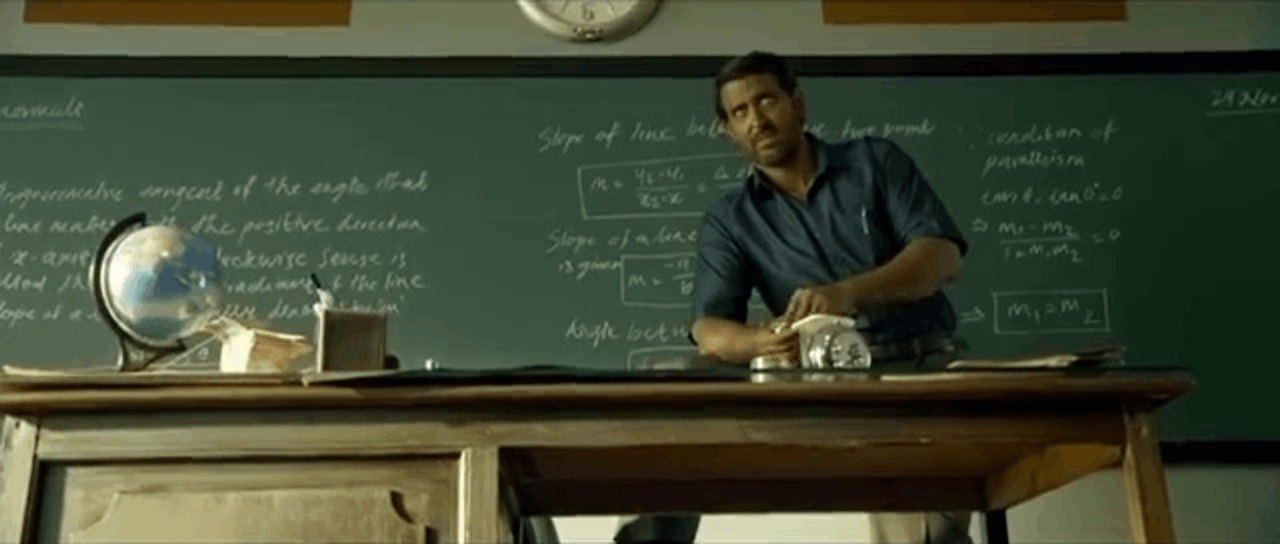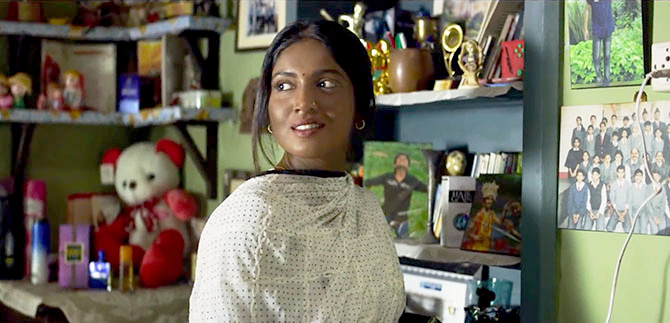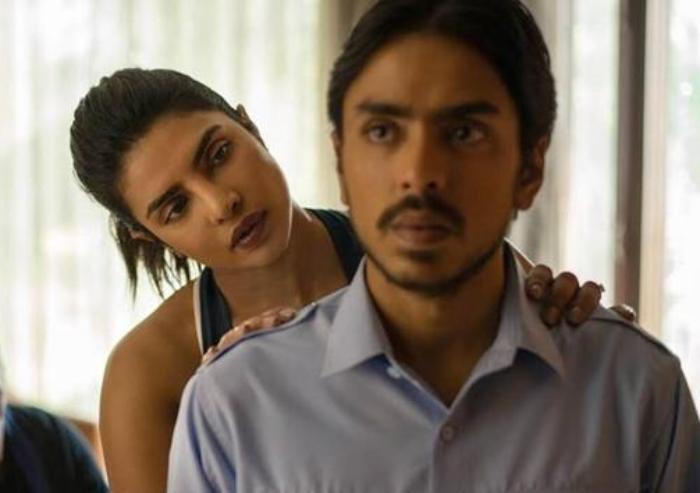Adressing Bollywood’s obsession with ‘Brownface’

Hrithik Roshan in 'brownface,' playing an economically disadvantaged Maths teacher in Super 30 (2019)
The controversy over an advertisement of skin whitening cream ‘Fair & Lovely’ last year reignited the debate over colour preference that has dogged the Indian society for decades, if not centuries. As the society has chased the idea that beauty is indeed skin deep, the cosmetics industry has made billions, a good INR 100 billion just last year, off that craze for fair skin tones that Indians, women and men in equal share, have harboured.
However, despite Indian celebrities such as Priyanka Chopra apologising for being part of the Fair & Lovely campaign and Abhay Deol openly spurning such products, Bollywood somehow still manages to produce hit films with racist and colourist undertones.
The phenomenon of “brownface” is a recent term coined to symbolise fair-skinned actors whose faces are painted several shades darker. This is usually done in an attempt to represent people from poorer backgrounds, as historically, fairness has been associated with upper-caste Indians. It drew attention again around 2016, when Alia Bhatt played a migrant labourer in Udta Punjab. Since then there have been several more examples of this, Ranvir Singh’s Gully Boy, Bhumi Pednekar’s Bala and most recently and perhaps most noticeably, Hrithik Roshan’s absurd makeup in Super 30, all released in 2019.
Pednekar, in response to the criticism, told media “When people see the film, they will understand that it is not making fun of colour. I am playing a deep coloured girl, my character is commenting on the societal bias that is still very prevalent in India on colour.”
“If he comes to me with an interesting part, why will I not do it?” Pednekar adds.
Rather than casting an actor with naturally darker skin, which ought not to be very difficult as most Indians have darker skin tones, Bollywood prefers using brownface to represent darker, economically disadvantaged characters.
“Her reasoning is ridiculous,” says Aasna Shah, an avid movie-watcher and college student who studies theatre in Mumbai. “These celebs jump on the bandwagon on social media, preaching about BLM, but turn around and support what is essentially the Indian version of Blackface. Even in America this would not be allowed now.”

Bhumi Pednekar’s skin was made several shades darker than her original skin tone in Bala (2019)
Shah explains that while her intention may have been worthy, what actors and producers fail to understand is that it sends the message that only fair-skinned actors are worth watching on screen.
“For actors, it might be an “interesting part,” but for regular Indians who have been stripped of their worth their whole lives, it is offensive and derogatory. Of course it is crucial to tell these characters’ stories, but why should they be the ones to do so?” says Shah.
Sankalp Joshi, an emerging actor based in Delhi, has been part of several productions in Mumbai, for example a music video for the popular indie band Chai Meets Toast and the short film Baatein (2019), which was nominated for a Filmfare award. As an industry insider, he offers a different perspective.
“I think in general our audience and industry is racist in a way, we can’t deny that. But you have to understand that what we are going to make is going to be directly proportional to what the audiences want,” Joshi tells Media India Group.
Joshi says that he understands why producers and casting directors are often under pressure to rely on stardom to sell tickets, rather than take a chance on a new, unknown actor.
“In this industry, money has to be made first in order to make films. And in order for money to be made, you have to cash in on actors like Hrithik Roshan. Also, a lot of actors are trying to change the perspective of how audiences see them. Hrithik is known for movies like Jodhaa Akbar (2008), War (2019), Bang Bang (2014), and now because he’s seeing the new direction that Bollywood is taking, and that the audiences are going towards something more earthy, like what Ayushmann Khurrana or Rajkumar Rao are doing, he probably wanted to try that. And when big actors switch to such roles, they bring in a lot of money,” said Joshi.
However, these bets are not always fruitful, which, according to critics, furthers the case for why more chances should be taken on actors who oppose the image of the traditional Bollywood star.
NDTV film critic Saibal Chatterjee gave Super 30 only two stars out of five, saying it was a mistake for Roshan to play the economically disadvantaged, genius Maths teacher from Patna, adding “the idea to bronze up Hrithik Roshan so that he can impersonate Anand Kumar is anything but super: it is a formula that equals zero.”
Joshi also agrees that Roshan and Pednekar’s parts were miscast, but puts it down to satisfying audiences rather than discrimination or an unfair audition process within the industry.
“They changed his skin colour to a very weird colour which was unneeded, basically. With Bhumi, she already has an image of playing characters who are earthy, grounded, a woman who’s being pitted against. She was portraying someone like that in Baala. They wanted to show something very current, very out there, which everyone should see, but I personally think they got it wrong with Bhumi. Someone more natural and of more wheatish complexion would have worked better but again it comes down to people buying it, if Bhumi is there as opposed to a new actor whom no one has heard of, more people will see the film,” he says.
He explains that the Bollywood casting process depends a lot on image as opposed to simply being based on raw talent.
“I was supposed to do Bandish Bandits, but in the end Anand [Tiwari] wanted to do something different with the character. I kind of understood how auditions worked and it was fair and square. It’s less about how good of an actor you are and more just about where your features meet the character as the director and writers imagine it.”
In a more positive light, Joshi whole-heartedly believes that the industry is due for a change, especially with the rise of award-winning productions on OTT platforms and a shift in what audiences prefer to watch.
“I feel [different types of] actors will be casted now because people are ready to take a chance as more of these projects succeed. For example, actors like Salman Khan have had declining careers for a few years now, because people are tired of the same old trope. And post Covid-19, even commercial cinema will change because lots of people have been home watching OTT content, so the industry will have to reevaluate what’s happening,” says Joshi.

Adarsh Gourav in ‘White Tiger’ (2021)
As Joshi says, there is definitely potential for huge changes, and the recent success of 2021’s White Tiger is a promising example of that. Adarsh Gourav, a previously commended, but lesser-known actor, has been lauded by critics in his perfectly nuanced portrayal of a poor driver who refuses to be beaten down by the chains of the Indian class system, and was even nominated for BAFTA award for Best Actor. This is shining confirmation of what the Indian film industry can achieve with the right casting choices and the right stories.
“Adarsh has opened up so many opportunities for everyone, it’s just great for any actor to come into the industry right now. The scene is definitely changing, and there’s always a better tomorrow,” says Joshi.









